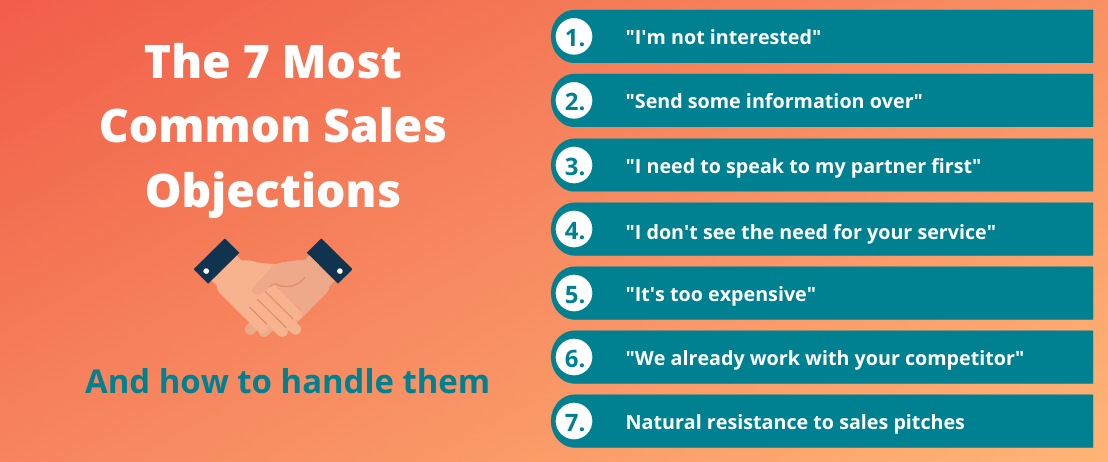What is a Sales Objection?
Definition and Common Types
A sales objection refers to any concern, hesitation, or question a prospect raises that could potentially derail the selling process. These objections are natural and expected as part of the sales journey. They typically fall into a few common categories:
- Lack of Budget – Many prospects cite financial constraints as a reason against purchasing.
- Lack of Trust – Skepticism about your product or the credibility of your company is another substantial hurdle.
- Lack of Need – Some prospects might not see the urgency or necessity for the product you offer.
- Lack of Urgency – Often, the timing might not seem right for the prospects, causing delays or hesitations.
Importance of Handling Objections Effectively
Handling objections efficiently is crucial for success in sales. By addressing objections adeptly, sales reps can build stronger relationships with prospects, effectively moving deals through the sales pipeline. According to Salesforce, “Successful objection handling addresses their fears and concerns, creating loyalty that can lead to multiple sales.” Effective objection handling doesn’t just convert a single sale; it fosters trust and loyalty that could lead to future business.

Source: Badger Maps
Identifying the Common Types of Sales Objections
Sales objections typically fall into four primary categories which provide a clearer picture of common challenges faced in the sales process. Understanding these can significantly enhance a salesperson’s effectiveness.
Lack of Budget (45% of objections)
This is the most cited objection. Prospects often indicate a lack of funds as a rebuttal against purchasing. It’s essential to understand that a ‘lack of budget’ objection usually signifies a need for more information about the product’s value relative to cost.
Lack of Trust (30% of objections)
Trust issues stem from the prospect’s doubts about your product or company. With 30% of objections falling into this category, addressing trust is paramount. Effective strategies include demonstrating credibility through real-world examples and offering assurance through transparency.
Lack of Need (15% of objections)
Prospects might not see the relevance or urgency in your product. This category, constituting 15% of objections, often needs you to demonstrate how your product meets their unrecognized needs or solves a problem they have yet to foresee.
Lack of Urgency (10% of objections)
Prospects could delay a decision by indicating that the timing isn’t right. This objection, though only 10%, can be a significant impediment if not handled appropriately. Creating a sense of urgency tied to immediate benefits can help tackle this.
Strategies to Overcome Sales Objections
Effectively countering objections requires a mix of soft skills and strategic insights. Here are some proven strategies to navigate common sales objections.
Active Listening
Active listening is crucial. Pay close attention to the prospect’s words and underlying emotions to understand the core issue. By responding appropriately, you demonstrate that their concerns are valued, fostering a sense of empathy and engagement.
Repeat Back to Confirm Understanding
A technique stressed by HubSpot is to repeat what the prospect has said. This approach ensures comprehension and shows the prospect that their concerns are being heard.
To illustrate:
“Just to confirm, you’re concerned about the return on investment with our product, right?”
Not only does this method affirm understanding but also strengthens the conversation, making your prospect feel heard and valued.
Validate the Prospect’s Concerns
Validation is about showing empathy and acknowledging the prospect’s concerns. For example, saying, “I understand why you might feel that way,” demonstrates empathy and opens the door for further dialogue.
Asking Open-Ended Questions
Delve deeper into concerns by asking open-ended questions. These questions encourage prospects to provide more detailed feedback, helping you get to the heart of their objections.
Sample question:
“Can you elaborate on what specific features you’re looking for?”
Leverage Social Proof
Utilize case studies and testimonials to build trust. Social proof can powerfully dispel doubts by showing how others have benefited from your product.
- Testimonials: “Our clients have seen remarkable results… Here are a few testimonials…”
- Case Studies: “Let me show you how company X leveraged our product to enhance their productivity by 30%.”
Overcoming Specific Objections
Different objections need tailored approaches. Let’s dive into some specific strategies.
Price Objections
When confronted with price objections, it’s essential to highlight your product’s value and its return on investment (ROI). Focus on how your product solves problems or improves efficiency, making the cost worthwhile.
Example rebuttal:
“I’d love to explain our other offerings that may better fit your budget.”
According to Cognism, “If the price is too high, emphasize the value of your product and why you’re different from the competition.”
Time Objections
Time objections usually signal that the prospect isn’t ready to make a decision. Create a sense of urgency by tying immediate needs to your solution.
Example rebuttal:
“I understand that you’re busy. Can I have just three minutes to show you how we can help?”
Competition Objections
When prospects bring up competitors, it’s a cue to highlight your product’s unique features and benefits.
- Compare features succinctly.
- Emphasize your after-sales service or customer support.
Trust Objections
Building trust is often the most challenging yet rewarding aspect. Use case studies, reviews, and transparent communication to establish credibility. Address any past negative feedback head-on to show your commitment to improvement.
Example rebuttal:
“I’m really sorry you’ve had that experience. We’ve taken steps to improve…”
Effective Techniques and Methods
LAER (Listen, Acknowledge, Explore, and Respond)
The LAER framework is a systematic approach to handling objections. Here’s how to employ it:
- Listen: Pay full attention to the prospect’s concerns.
- Acknowledge: Recognize their feelings and objections.
- Explore: Probe deeper by asking questions to understand the objections fully.
- Respond: Provide a thoughtful, considered response to address the concerns.
Response Time and Clarity
Quick and clear responses to objections avoid stalling the sales process. The faster and more effectively you can address concerns, the better the chances of keeping the momentum.
Avoiding Knee-Jerk Reactions
Knee-jerk reactions can seem defensive and dismissive. Always take a moment to consider your response carefully. Calm and measured replies are often more effective in winning over a prospect.
Preparing for Objections
Preparation is key to managing objections smoothly. Anticipate common objections and arm yourself with strategies and responses.
Research and Anticipation
List common objections and have well-thought-out replies ready. This preparedness enables you to respond confidently and effectively.
Role-Playing With Team Members
Regular practice sessions with your team, simulating objection-handling scenarios, can be incredibly beneficial. Role-playing helps in honing your skills and ensures you’re prepared for real-world objections.
Creating a Comprehensive Objection-Handling Guide
Documenting common objections and effective responses can serve as an invaluable tool for your sales team. As mentioned by RAIN Group, “Create an objection management document that lists the top 25 most common objections and a short response for each.”
Conclusion
Overcoming sales objections is a critical skill that every salesperson needs to master. By understanding the common types of objections, employing strategies like active listening, validating concerns, and leveraging social proof, and preparing responses ahead of time, sales teams can effectively navigate and address any reservations prospects may have. The LAER framework, alongside a thoughtful preparation strategy, ensures that each objection is met with poise, thereby building trust and paving the way for successful sales outcomes. Remember, handling objections is not just about winning a sale; it’s about building a relationship based on trust and understanding, which ultimately leads to long-term loyalty and business success.


